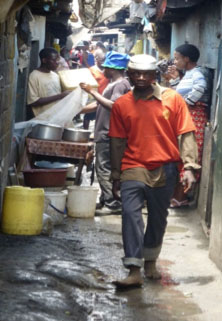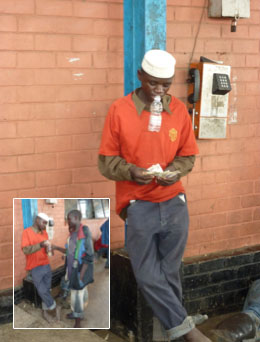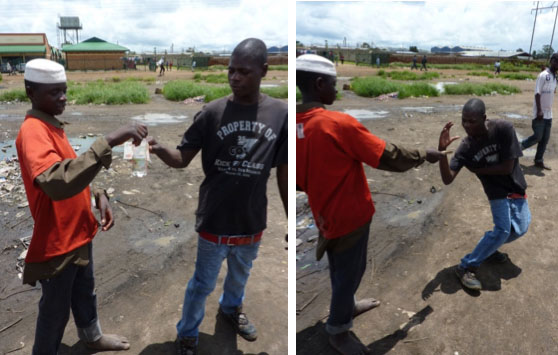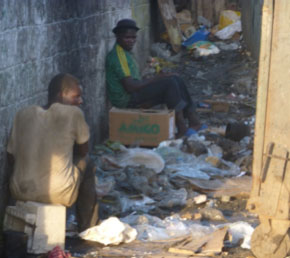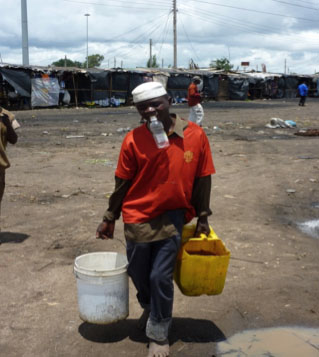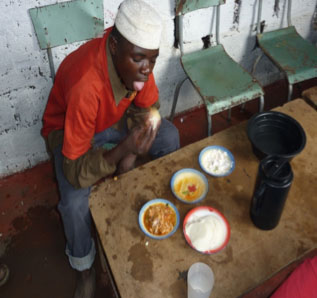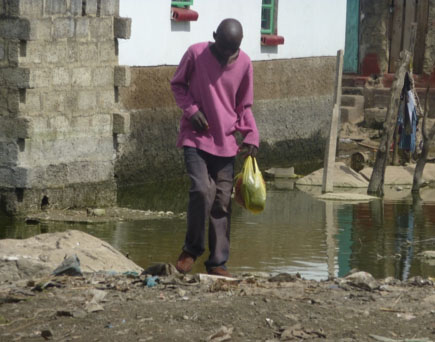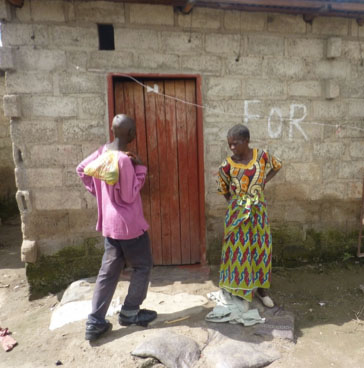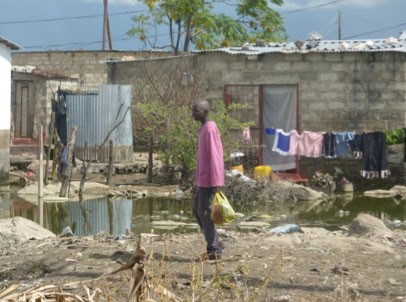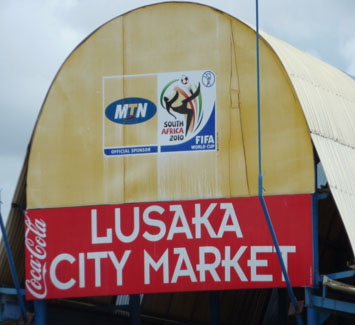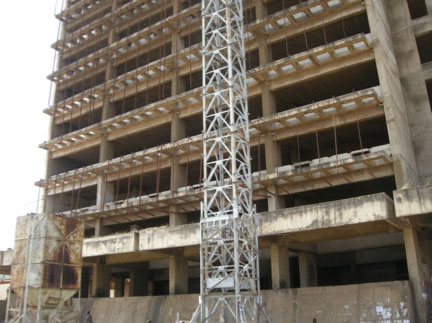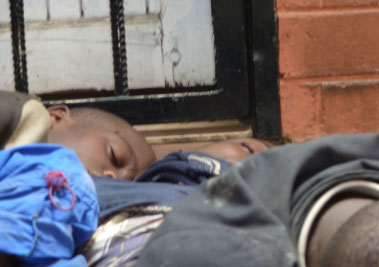Photography and photostory production by Mwilo Mumbi and Anayawa Sililo
Like strings on an acoustic guitar, roads run parallel across the city of Lusaka from North to South. We have Cairo Road, Freedom Way, Cha Cha Cha and Lumumba Roads. From East to West, we have Independence Avenue, Church Road and the Great East Road.
All these roads are around the town centre of Lusaka, the capital city of Zambia.
The city is very busy during the day with people from all walks of life walking in different directions and there are so many cars on these roads. At night there are few activities because most people not live in the city centre, but go to their homes in different residential areas.
However, there are some people who do not go to their residential areas, because the streets of Lusaka are their workplace and home. They say life is how you take it. How would you take yours if you were living on the streets of the city of Lusaka?
Douglas Kunda is 17 years old. He is currently living on the streets of Lusaka. Douglas was born in 1993 and he is the first born in a family of four. He lost both his parents in 2007. His young brother and sister died a year later while he was still living in Misisi Compound (high density residential area) with his grandmother. That same year Douglas left Misisi Compound,
“I left my grandmother’s home because she had a stroke and could not provide for my needs.”
His grandmother continues to care for his young sister.
It is not easy surviving on the streets. Douglas is involved in activities that can help him to find money to survive – he washes cars for people, bullies some of his young peers to get what he wants from them, fetches water for marketers, carries rubbish bins from restaurants to dumping sites, after which he gets a free meal. He does all this work for food.
Douglas also sells “sticker” – an inhalant drug which is a liquid substance said to be a by-product of jet fuel and it is highly abused among street children.
“When I take sticker, I feel on top of the world and forget all my problems. I do not feel hungry or cold. But when I take a lot of sticker, I sometimes get a pricking pain around my ribs,” says Douglas.
Douglas is an ’employee’ of an “older guy” (whom he refused to identify but calls him “the boss”). “The Boss”, has employed many street children and young people to work as ‘sales personnel’ while the ‘older boys’ collect money from them.
Douglas sells sticker* from a bottle of a local beverage called Tangy, which holds about 350 milliliters of liquid. He then measures and sells the sticker using a lid from the same bottle. The “boss” buys the sticker in bulk: each bottle costs K8,000.00 (€1.30). Douglas then sells the sticker using the lid from the bottle at a cost of K1, 500.00 (24 cent) and he makes K35,000.00 (€5.58) from each bottle. His boss pays him K3,000.00 (48 cent). When asked why he does not sell sticker for himself, he said he would be “beaten up” by the older boys. His boss provides him protection and a place to sleep.
* Note: According to the Narcotic and Psychotropic Substance Act of the Laws of Zambia, sticker is not listed under the unlawful (prohibited in Zambia) drug substances where one can be charged if found in possession or trafficking. So, since sticker is not on the list of prohibited drugs Douglas cannot be prosecuted.
Douglas also collects water and throws garbage away for restaurants who give him food as payment for this work. “I enjoy my lunch because it gives me energy. I cannot inhale sticker every time I need food but I do not always get piece – work to have some food”.
At times, Douglas gets sick. He says that there is a mobile clinic which comes to give them treatment from Kids Save. At times they are visited by street outreach workers from Fountain of Hope – a street kids drop-in centre, and they would take them to the hospital. Due to high drug and alcohol abuse and lack of protection for the children on the streets, many of them get involved in risky sexual activities. Douglas said that he once had a girlfriend, but that she was taken to the village by her grandmother. He would not easily open up about his sexual life, but he did say that he has had sex before and has used a condom only once, which he picked up from the streets.
“I also fight because someone may take advantage of me and think I am a coward”.
Sometimes the bigger guys beat him up especially when his boss is not there. However, he is learning to be strong.
When he finds the time, Douglas goes to visit his grandmother in Misisi Compound, because he misses her.
Douglas’ grandmother told us that she had three children and Douglas’ mother was her first born daughter who was married to a mini bus driver. Both passed away in 2007. Her other two children also died earlier. She worked as a housemaid so that she could take care of Douglas and his young sister. It was very hard at times because she could not afford to feed them.
Her dream is that Douglas should finish school. Unfortunately, he stopped going to school and decided to go on the streets with his friends. “The situation made me unhappy. I have high blood pressure and I ended up with a stroke and I could not work anymore. I am currently not working. I stayed with a friend and now I have found a new place to live and the Church gave me K80,000.00 (€12) to pay for rent. I do not have any relatives to help me financially or materially”. She hopes that one day Douglas will leave the streets and get back to school because she is always worried about him.
At night and especially at the weekend, Douglas goes to Northmead shopping mall, where lots of people hang around the bars and nightclubs. During the week when he does not need to go to Northmead he spends his nights in an unfinished building in Freedom Way, in Lusaka. “There are so many street kids who sleep in the building, but my place is secure because my boss takes care of me as his employee.”
Like any other child, Douglas has a dream. “Sometimes I dream I am in school”. After his activities during the daytime, this is where he comes to sleep at night. “I know that one day, I will be out of the streets. What I want most is school. I used to do well in class and got good results. I have some report forms at my grandmother’s house”

